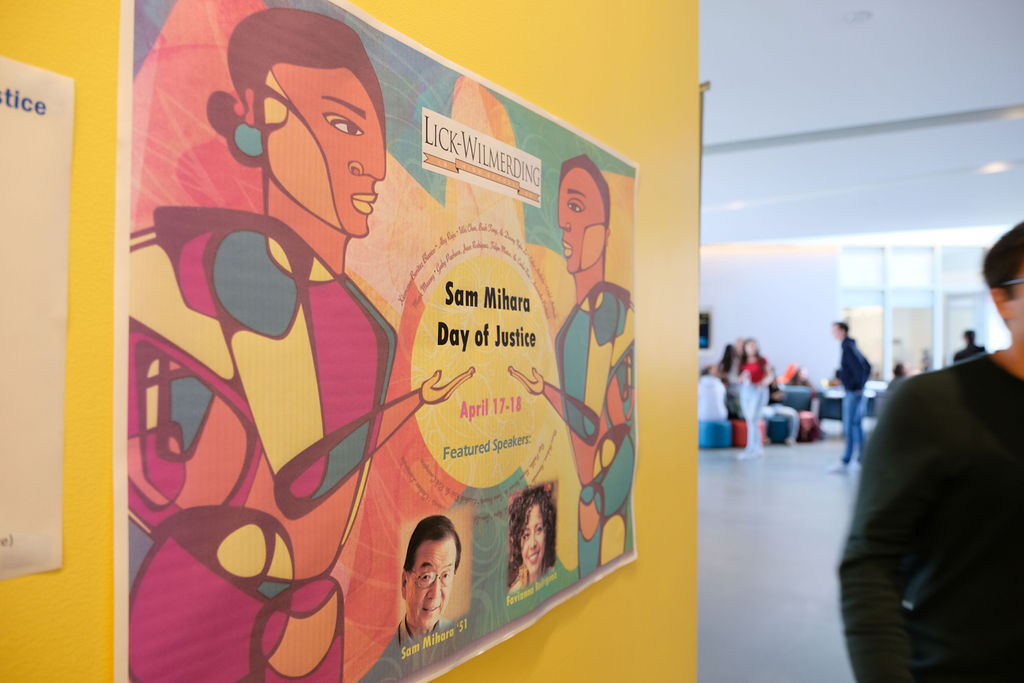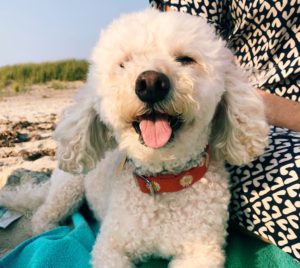On March 11 and 12, the LWHS community paused their daily schedules to participate in Sam Mihara Day of Justice. Formerly known as Walk with a Purpose, the day was renamed to honor Sam Mihara, an LWHS alum. Mihara and his family were imprisoned in a Japanese American internment camp during World War II. Mihara now gives educational presentations at schools and universities about his experience.
LWHS’s social justice event was noticeably different from those of past years: it was two days long, with a second day devoted entirely to the exploration of social justice through the arts. Furthermore, all teachers were required to participate in the program and the curriculum for the white affinity spaces was reshaped to be an educational space focused on anti-racism and allyship. The responses to many of these changes have been positive.
Christy Godinez Jackson, Director for the Center of Civic Engagement, explained the name change. “We came up with Sam Mihara Day of Justice because one, it recognizes an alum in our community who is doing the work that we so often encourage our students to do. When you leave this place we want you to think about how you’re going to give your time, treasures, and talents. We haven’t done our job if you graduate from Lick and you are thinking about yourself and your own success.” Sam Mihara demonstrated these traits when he was younger and was driven by his desire to succeed in his own career, but later in life he realized that he wanted to use his experiences and talents to help others. Godinez Jackson commented that it was fitting to name the conference after a man who embodies “what this conference is trying to do, which is just expose you to different injustices that happen in the world and how can you be an agent of change.”
One of the biggest changes that the program underwent this year was the change in the structure of affinity spaces, spaces for groups of people with shared identifiers (in this case racial) to convey their unique perspectives and experiences. The spaces for white identifying community members were converted to anti-racism workshops. Of this change, Caitlin Cummings ’20 said, “the changes needed to happen and were valuable to the community. The new space fostered a less resistant environment, and as a result, students were able to take away valuable information and awareness.”
Godinez Jackson commented that changes to the former white affinity spaces, “came from students. . . people were saying we want to talk about white privilege, we want to talk about how do we be allies in this work, we need a separate curriculum.” Godinez Jackson also noted that the change to the name of the spaces came from the fact that, “there has always been resistance to white affinity spaces.” She wanted the community to refocus and see what it would look like to have white identifying students talk about how to be allies. “Being non racist and anti racist are completely different things,” Godinez Jackson said. She hoped that the anti-racist curriculum would guide students “to be those change agents.”
In the anti-racism workshops, students and faculty members participated in conversations about white fragility and how to engage respectfully in conversations about race with other white identifying people as well as people of color. Activities included open discussions, watching video clips from experts on white fragility, and artistic activities. Ben Cohn ’08, the Associate of the Center for Civic Engagement, worked closely with the organization Showing Up for Racial Justice (SURJ) to write the curriculum for the anti-racism workshops in an attempt to understand what the students wanted the spaces to be called and what they wanted the spaces to look like. Interrupting White Supremacy, a faculty group on campus, also weighed in on curriculum.
Another major change to the program was that frosh and sophomores are no longer required to participate in specific workshops with set curriculum. This year, in response to feedback from students, each student attended a program of their choice. Many underclassmen appreciated the opportunity to choose their workshops and to connect with upperclassmen in a workshop setting. Mimoh Lee ’21, stated that she enjoyed the lack of mandated curriculum because the program is all about, “finding a way that you can connect specifically to activism.” Lee said that attending a workshop of one’s preference helped the program feel more personal.
Workshops became more intimate, focused spaces with fewer students in each. As usual, upperclassmen planned and executed their own workshops for underclassmen, which Godinez Jackson said is “such a powerful opportunity” for the students. Cummings created a workshop on toxic masculinity. “I wanted to address an issue that is often overlooked at Lick,” Cummings said, “I think our workshop was generally well received and I hope that the new awareness surrounding the subject of toxic masculinity will combat systemic sexism at Lick and beyond.”
Students also appreciated hearing from people outside of the LWHS community. Because Sam Mihara Day of Justice was a two-day program, and there was an increased artisitc focus, there were more presenters from outside of school. While students still appreciated the workshops they attended that were led by LWHS faculty and students, many students commented that they enjoyed the variety of perspectives that these new presenters brought to the day. Ari Gonzalez-Silas ’20 said, “I think the opportunity to step outside the Lick bubble is really valuable and I think this format did it better than previous years.” In agreement, Chloe Fowler ’21 said, “I felt like the best led workshops were the ones from outside of school, I liked the experience and they brought different experiences and brought different perspectives to our community.”
During the second day of SMDJ the entire senior class was off campus. Seniors spent the day in the Presidio participating in the Senior Transitions Retreat.Seniors participated in a variety of workshops and heard from keynote speaker Brianna Booth. Her lecture, “Beyond Consent,” was an in-depth workshop on how to handle romantic, platonic and sexual relationships in college and beyond. The afternoon workshops handled topics intended to aid seniors in their transitions to college, and covered topics such as affirmative action, college party culture, and intimacy.
Looking towards the future, Godinez Jackson wants the second day of Sam Mihara Day of Justice to focus on mental health and anxiety. Godinez Jackson said, “We hope that every year moving forward we’ll honor a different alum at the end (of the program).” When reflecting on aspects of the day that still need work Godinez Jackson noted, “I think we still have work to do in affinity groups. In particular affinity groups where there are very small populations, like your Middle Eastern affinity group or our indigenous people’s affinity group. I also think there is work to be done in some of the larger spaces, like the multicultural affinity spaces.”
Godinez Jackson also mentioned that she has always wanted to “have a conference that we invite other schools to. I know there are a few independent schools that put on similar experiences so I wonder what it would look like if we did a three-way conference where students are in workshops with kids they don’t know.” Godinez Jackson referred to the potential power of students experiencing a more realistic conference-like setting where they would be able to meet new people and share new ideas.






